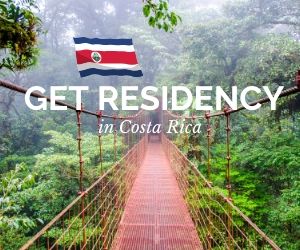Luck left out this other letter that he included in that quote in another thread which was also very provocative.
AM Costa Rica wrote:
Readers respond to article on citizen security proposals:
Quote:
Here are the top 10 reasons Costa Rica is incapable of dealing with organized crime:
(1) Money: The criminal organizations have it, Costa Rica doesn't. It would take a massive investment of capital in every aspect of the antiquated crime fighting machinery to bring the country up to the levels of competency that developed countries had 50 years ago.
(2) Corruption: Fighting organized crime requires confidentiality of operations. If criminals have prior knowledge of investigations, they can avoid them. Officials at every level of government can and have been bought by criminal enterprises, so to expect that sensitive information will remain confidential is just plain silly.
(3) The courts: The courts are already dysfunctional. To add the burden of large, complex cases of the kind associated with organized crime would only hasten a complete collapse of the system.
(4) Judges: They demonstrate again and again their unwillingness to put even small time, habitual criminals behind bars where they belong, instead turning them loose to prey upon the public. And organized crime has a long and colorful history of bribing and/or threatening judges who hear their cases. How can anyone expect these spineless jurists to bring down violent, well-funded criminal organizations?
(5) The police: They're under staffed, under equipped, over tasked and shamefully under paid, which makes them targets for corruption as well. In most rural areas they don't even leave their offices after dark.
(6) Investigative resources: Since the police and district attorneys have little or no past experience in dealing with organized crime, it is logical to assume that they lack the investigative skills to mount a serious campaign against them.
(7) Scientific resources: I don't believe Costa Rica has the equipment or the know-how to effectively investigate crime scenes.
(8 ) Border control: The borders with Nicaragua and Panamá are porous, allowing the easy movement of drugs, weapons, people and money in and out of the country, and the coast guard doesn't have the capacity to control the seas.
(9) The Laws: How can a country that doesn't even have laws against CONSPIRACY hope to fight organized crime?
(10) Witness protection: The new laws mandating the protection of victims of and witnesses to crimes, while certainly well intentioned, aren't worth the paper they're written on, and the public knows it. Who's going to protect them and their families and their places of business, the same police who haven't been protecting them in the past? Testimony against organized criminals, or even unorganized criminals for that matter, will continue to be a suicidal proposition that very few Costa Ricans will undertake.
How about scrapping the plans to use $70,000,000 of communist Chinese money to build a soccer stadium and re invest it in law enforcement?
Dean Barbour
Manuel Antonio
The reason that governments like China donate money for projects like the stadium rather than in more amorphous things like law enforcement is twofold. First and probably foremost, it is something that every tico won't be able to help but see for many years to come every time they pass into their capital. It will serve as a highly visible reminder to everyone of the generosity of the Chinese government (and why CR should back them in the UN and other world forums when it comes to Taiwan). Secondly, like so much of what China gives in "aid" to other countries it comes with strings attached. In addition to obligating CR to back them when it comes to the Taiwan issue and probably agree to more favorable terms of trade in other areas (what next? Will we be seeing Chinese oil drilling rigs off the coast of Tortuguero?) in the case of the stadium, the Chinese propose to build it using imported chinese labor. So much of that $70M cost will be in the form of wages much of which will be repatriated to China.
It is interesting that this writer mentions China because, until relatively recently, China has also been a very poor country with few resources to spend on law enforcement and yet since the communists took over (around the same time as the current government in CR) crime has not been a major problem in China. The reason, lacking resources to handle it any other way, they dealt with any crime extremely harshly. No fancy law enforcement investigations or long drawn out trials. If someone was caught in the act, they were simply tried before they found him guilty (with at least a 98% rate of convictions of those who go to trial) and then either executed or sent to harsh labor camps for many many years. Of course, this has drawn howls from civil libertarians and many innocent people were falsely convicted (not to mention those who were convicted for political crimes). And anything that extreme would only be possible in a totalitarian dictatorship and would never be accepted in a democratic country like CR. However, certain elements of it could be implemented in CR and its citizens might ask which is worse for a few innocent people to be falsely imprisoned or for ALL of its citizens to be essentially imprisoned out of fear of rampant crime. I, personally would find the suspension of due process very disturbing, but if someone with a record longer than your arm is caught redhanded robbing someone or if a Colombiano is caught with drugs in his possession he should not just get a slap on the wrist and the CR government should be able to handle cases like that DESPITE a severe lack of resources.
Of course, what I said above really applies mostly to the "disorganized crime" of petty criminals. The letter written above was specifically addressing the "organized crime" of drug trafficking rings and most of the reasons cited would still be a major obstacle to dealing with those types of criminals. Also, the 2 are related in the sense that many if not most petty criminals are probably addicted to the drugs that the narco-rings bring into the country. However, which end of the criminal activity in CR directly affects the average resident, drug cartels themselves or the crack-addict thieves who rob you on the street or break into your homes?
Its also ironic that the other letter that Luck re-copied at the top of this thread comes from a former CR resident (probably a gringo) who now lives in Medellin. Where do I begin with the irony here?
The 1st HUGE irony is that he talks about CR's President Arias fiddling like Nero while CR burns and falls into anarchy. That is unbelievably ironic considering that the writer probably came from the US (and probably still votes there absentee) and the US has had a President for the last 8 years who had been fiddling while an even greater worldwide and national disaster had developed around him, his country and ultimately the entire world. Okay, maybe its not fair to lay the US's current problems entirely at the hands of GWB and we don't want to get into a political debate here about US politics, but he undoubtedly played a huge part and the analogy to Arias, who also shared responsibility with other political actors and local forces for what has befallen CR, is a perfectly valid one.
The 2nd HUGE irony in his post is that he moved from CR to Colombia. Since we're talking about ORGANIZED crime here it should be pointed out that for the most part it ORIGINATES from his new host country. And a lot of the "disorganized crime" that is committed by ticos is a result of the drugs that they've become addicted to that continue to pass FROM his new home country of COLOMBIA through CR on their way to his country of origin, the US.
The 3rd HUGE irony is that until recently Colombia had a crime and violence problem that made even what CR has now seem like Ch*ld's play. In many parts of Colombia, they still do. However, Colombia has (or had) ALL of the same 10 problems listed in that other letter. So how were they able to stem the crime and reverse much of it. The answer is an iron hand. Some of their tactics would never pass constitutional muster in the US and probably wouldn't be acceptable even in CR. However, things in Colombia had gotten SO bad that its citizens were finally willing to accept extreme measures (like extra-judicial killings by armed right-wing death squads). Maybe things have not gotten that desperate in CR yet, or maybe they have.
If the Colombian government can send out death squads under cover of night to take out their home-grown narco rebels, why can't CR do the same with the organized rings that operate in their country and COME from COLOMBIA. It does not require any honest judges or brave citizens testifying. I'm sure the CR authorities KNOW who these guys are and where they live. They just don't have ticos willing to testify or judges willing to convict.
And as alarming as acts of vigilanteeism may be (the legal-judicial process is always preferable and sometimes these vigilantees get the wrong guy), at some point we all have to ask ourselves isn't even a heavily flawed club preferable to the practical alternative which is to do nothing at all because the legal system can't deal with it. In a system where things are already descending into anarchy, perhaps the last resort is allowing citizens to own guns AND to use them to do the things that the police are incapable of or unwilling to do. If enough home invaders are shot by its residents or enough street robbers are chased down by local mobs, maybe these criminals would think twice before acting as brazenly as they have been doing.
Of course, that is largely an emotional reaction to an increasingly desperate situation. However, if CR is really descending into a state of anarchy, should the criminals be the only ones allowed to do whatever they want or shouldn't the regular citizens be allowed to fight back and get in a few shots of their own if the legal authorities won't?










